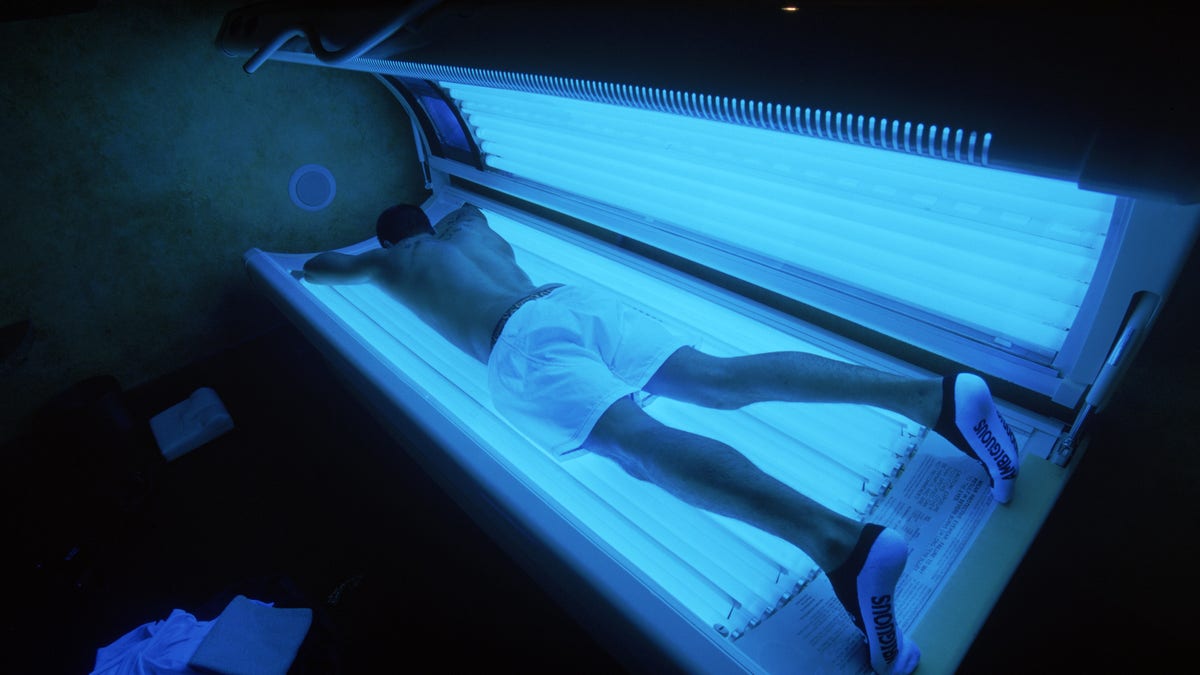
RIVERSIDE, CA - APRIL 10: Professional BMX rider Cory Nastazio goes to the tanning salon in Riverside, California on April 10, 2002. (Photo by Donald Miralle/Getty Images) (Getty Images)
(EndPlay Staff Reports) - Brain activity and corresponding blood flow among people who frequent tanning salons are similar to that of people addicted to drugs and alcohol, according to a new study.
This findings may help explain why people continue to use tanning salons despite the risk of contracting melanoma, the most dangerous form of skin cancer.
"Using tanning beds has rewarding effects in the brain so people may feel compelled to persist in the behavior even though it's bad for them," said Dr. Bryon Adinoff, professor of psychiatry at UT Southwestern Medical Center and senior author of the study. "The implication is, 'If it's rewarding, then could it also be addictive?' It's an important question in the field."
The study is available online and in a future print edition of Addiction Biology.
The new research is the first to monitor brain activity of people while they use tanning beds. Scientists had already suspected that regular exposure to ultraviolet radiation could become addictive, reported The New York Times.
The study involved placing seven frequent salon bed tanners under a UVA/UVB tanning light during two sessions. During one session they were exposed to ultra-violet light (UVR), and in the other a filtered UVR (sham UVR) was used.
During the UVR session the participants demonstrated a relative increase in regional cerebral blood flow, a measure of brain activity in brain regions associated with the experience of reward.
"These changes were accompanied by a decrease in the subjective desire to tan. These findings suggest that UVR may have centrally rewarding properties that encourage excessive tanning," the researchers wrote.
Skin cancer is the most common form of cancer in the United States, with more than 3.5 million skin cancers diagnosed each year in more than two million people, according to the Skin Cancer Foundation.
In addition, the group reports:
One out of five Americans will develop skin cancer.
During the past three decades more people have had skin cancer than all other cancers combined.
Some 13 million living Americans have a history of non-melanoma skin cancer (such as basal cell carcinoma or squamous cell carcinoma), and nearly 800,000 Americans are living with a history of melanoma.
For more, go to My Fox Memphis.
Follow us on twitter.com/foxnewslatino
Like us at facebook.com/foxnewslatino








































